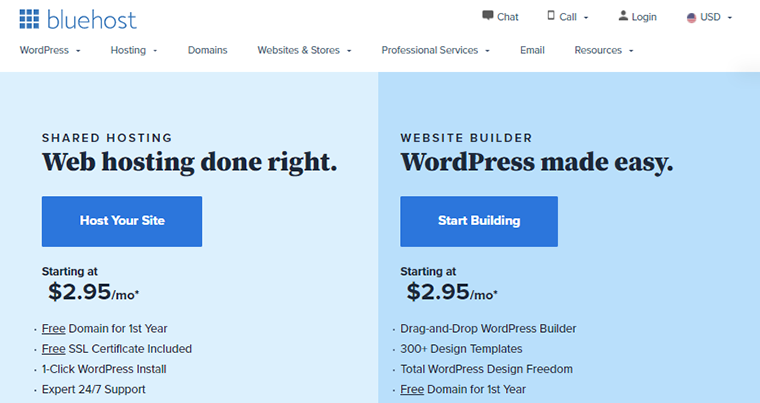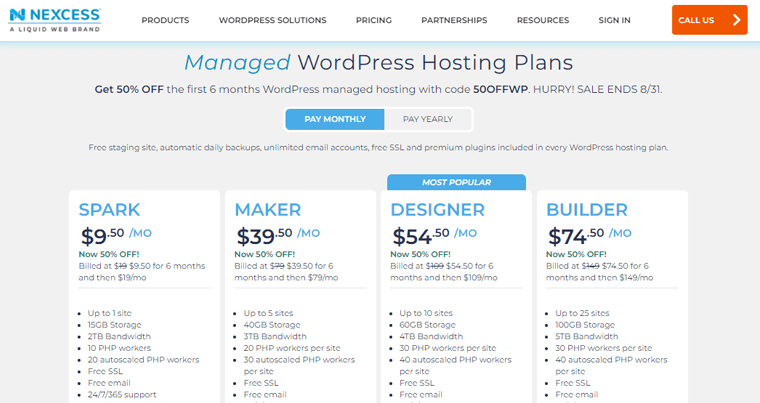Are you looking for answers to some of the crucial web hosting FAQs (Frequently Asked Questions)? If yes, then you’ve come to the perfect spot.
It goes without saying that finding and buying the most suitable hosting plan is the root step in the website hosting process.
Therefore, it’s necessary to take important factors into account when choosing a hosting plan. A hosting plan is something that you’ll settle on for a longer period of time for your site.
So, it’s obvious that many people might have similar questions regarding buying the right and ideal web hosting plan. But be at ease now!
In this article, we’ve covered the most commonly asked web hosting FAQs along with their answers. We believe this article will ultimately help you buy the right hosting plan for your site.
Without further ado, let’s get rolling!
Insight Into Web Hosting
Before moving ahead, let’s get some insight into web hosting. This will help you to lay the groundwork for what follows in the next section of the article.
To begin, you can just think of web hosting as a mandatory requirement for putting up a website online. Broadly speaking, it’s the service that offers all the necessary tools and infrastructure to make your website available on the internet.
In essence, you can set up a website on your local computer, but it won’t be accessible online unless you host it.

Web hosting is therefore more like an online storage space. As a result, you purchase a specific amount of online space so that everyone around the globe can view your website.
To your ease, there are many web hosting providers that provide hosting services under various hosting plans. Comparable to how you can rent rooms in a building, featuring shared rooms, apartments, flats, and so forth.
So, once your website is hosted, web browsers direct viewers’ PCs to the hosting server. On the hosting server, your site’s actual files are kept. Consequently, anyone with an internet connection can easily crawl your website.
For more comprehensive information, check out our article on what web hosting is.
Moving forward, let’s explore the main topic i.e. web hosting FAQs along with answers.
Web Hosting FAQ – Things to Know Before Buying a Hosting Plan
Now, it’s time to head into various web hosting FAQs. In other words, things to know before buying a hosting plan.
Also, we’ve categorized all the web hosting FAQs into 8 types. Namely, General FAQs, Shared Web Hosting, Dedicated Web Hosting, VPS Web Hosting, Cloud Web Hosting, Managed WordPress Hosting, Reseller Web Hosting, along with Technical FAQs about web hosting.
Now, let’s jump into it.
A) General Hosting FAQs
Starting with the basics, a web hosting service is essentially a contract between you and a web hosting company. Whereby you agree to pay a monthly/yearly rental fee to lease out a certain portion of their powerful web servers.

Since web servers cost a lot of money, renting one from a web-hosting company is significantly more cost-effective. Consequently, you can host your website and reach out to the world without much investment.
So, in this section, we’ve covered some of the most general FAQs related to web hosting. Now, let’s check them out one by one.
1. How much does hosting a website cost?
When it comes to the cost of web hosting, it can be quite confusing. As you need to consider the different characteristics and features that come along with it. Some hosting providers might offer incredibly low pricing to pique your interest. While others will only boost the plans’ inclusions of new features and advantages.
Therefore, the cost of web hosting depends upon multiple factors. Such as web hosting type, web hosting provider, the plan period, and most important features provided.
It may cost each month as little as $2.95 to $13.95 for shared hosting (the cheapest kind). And ranges from $80 to $506 for dedicated hosting (the expensive kind).
2. Would a hosting plan have any unstated fees of any kind?
Pricing in the web hosting market may not be what it looks, particularly to a beginner webmaster. Prior to making any commitments, it’s always wise to research the actual cost of any proposed hosting plans.
You can take the following things into account in a web hosting plan. Such as:
- Check if there is any setup charge or not of your hosting plan.
- Similarly, excessive usage costs are another fee to watch out for. Particularly at such hosting plans that advertise unlimited features. As every web hosting plan has its restrictions.
- You should not forget to check the domain transfer fees. Check if there are any expenses associated with migrating any existing websites to your new web hosting account.
3. What kind of hosting plan is the most affordable?
A shared hosting plan is the most affordable among all other kinds of hosting plans. Such hosting packages commonly start with less than 10$ per month. In fact, few hosting providers offer it for approximately $3 per month.
For example, DreamHost offers shared hosting as low as $2.95/month.
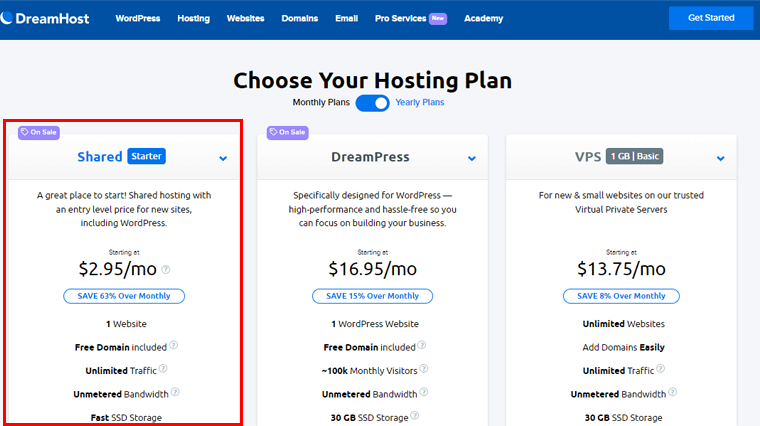
Again, several hosting companies such as Bluehost and DreamHost do provide shared hosting plans with unlimited features. Like unlimited bandwidth, disk space, number of domains, and so on. Yet, it’s crucial to remember that most of these unlimited features have restrictions.
Other than that, you can find monthly rates for plans with contracts longer than a year are typically lower and cheaper.
You might want to check our article on the best cheap WordPress hosting services.
4. What are web servers, and why are they crucial?
Simply, you can understand web servers as a type of digital device on a web that handles network resources. Broadly, web servers are essentially machines that send data from a website to the PC of a site visitor.

Without a web server, there would be nowhere to retain the data and transfer it to a visitor’s device. They are solely created to run stuff on the Internet, like websites and applications. Consequently, they are significant components of the internet that make your website run.
Today, there are many various web servers on the market. And each one is made to meet a particular set of client requirements. Thereby, a competent web server is required if you want your website to operate at its peak performance.
5. What does “server uptime” actually mean?
Basically, you can understand ‘server uptime’ as the duration to which your web server is fully operational and online. So, in case your server breaks or goes offline, then your websites housed on that particular server don’t work unless the issue is fixed.
Therefore, you can use the web hosting provider’s server uptime as a direct sign of their dependability and consistency.

The majority of web hosting companies such as HostGator display a seal that promises an uptime of greater than 99.9%. Despite the fact that this may appear tempting, the majority of businesses fall short of this guarantee. Consequently, it’s always better to check out reviews of real past users.
With that, let’s move forward to the shared web hosting FAQs.
One of the most popular web hosting plans is shared web hosting as it’s incredibly low cost. Using this kind of hosting plan, you can easily gain your initial experience with web hosting without much investment.
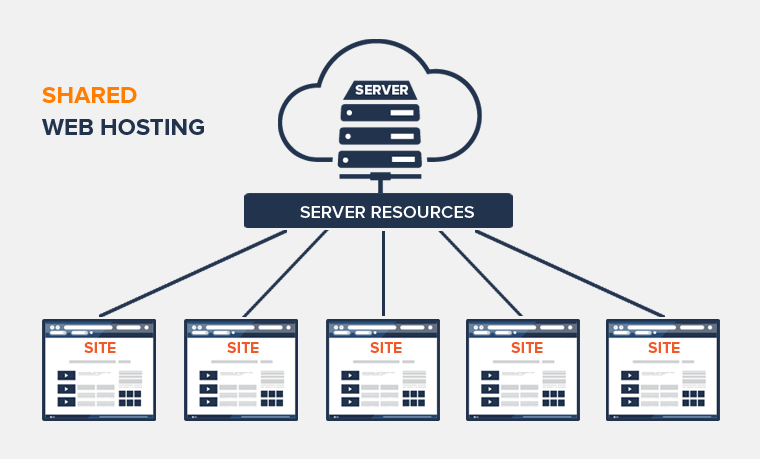
Essentially, the phrase “shared” hosting refers to a configuration of hosting in which a single web server powers a large number of websites. Precisely, you get a small portion of a web server that is used by several other websites.
Despite being a less extensive service, it’s quite sufficient to run a simple website and for receiving web experience. So, if you intend to start out as a website owner, then a shared web hosting plan is a good plan, to begin with.
1. How do servers get shared?
Basically, you can find the shared hosting web servers are divided into portions given to each hosting account. In other words, you can understand it as ‘server partitions’.
Simply, server partitions refer to a segment of a web server that is totally distinct from the rest of the server. Despite the fact that partitions are entirely independent, the web server setup is the same throughout the entire server.

Meanwhile, in the case of a partition overload, server resources are shared equally across all servers. For instance, let’s say, your website starts using the network resources stretching its limits. In such cases, another server partition with additional server resources is smoothly functioning.
2. What advantages does a shared hosting plan offer?
Some of the significant advantages that a shared hosting plan offers are:
- The startingly cheap cost of the majority of the shared hosting plans is what makes it stand ahead of the rest.
- Some shared hosting plans include unlimited features. Like unlimited bandwidth and unlimited disk space.
- Most shared hosting plans provide you with unlimited domain features. This helps when you have several websites and would like to manage them from a single interface.
- If you’re unsure of your needs, a shared hosting plan is a way to go. Since it’s high flexibility and less risky with a reasonable price.
3. What drawbacks exist with shared hosting?
The major drawbacks that exist with shared hosting are:
- Comparatively, shared hosting plans give you access to lesser server resources. When several websites are using the same web server at once, the server starts to slow down.
- Though it’s quite uncommon for unexpected site breakdowns in the hosting sector. Yet, you may experience site downtime because of server maintenance.
- The hosting company must do maintenance tasks to keep the server clean and functioning flawlessly. In such cases, your sites are briefly unavailable for between 15 and 60 minutes.
Therefore, if you’re serious about the long-term goal of your online ventures, then you might consider looking into other hosting plans.
4. Who is this plan best suitable for?
Generally speaking, shared web hosting is ideal for you if you are just beginning with web hosting. Also, shared web hosting might be the best option for you if you require a low-cost way to launch your websites.
Meanwhile, you can go for other hosting plans if you intend to run a highly objective website for your business.
With that, let’s step ahead to the dedicated web hosting FAQs.
C) Dedicated Web Hosting FAQs
As the name suggests, in dedicated web hosting, a private web server is devoted to a single individual or business. In contrast to shared hosting plans, you don’t have to share your web server with any other users.
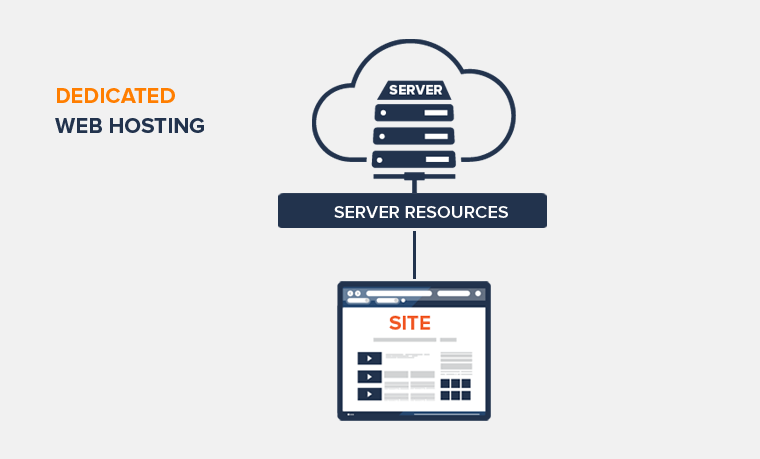
In fact, it’s one of the most potent solutions accessible for small to medium-sized online business owners. Moreover, if you wish to run multiple sites, then you can also do so without the need to upgrade additional features or capabilities.
Also, you’ll never have to worry about slow-loading web pages or site breakdowns while using a dedicated server.
1. Why is a dedicated server the ideal choice?
As previously mentioned, dedicated web servers are servers dedicated to a particular holder of a hosting account. Its independence and overall strength of the web server are what make it the ideal hosting choice among the rest.

In essence, when you buy a dedicated hosting package, you are renting your own dedicated server from a distant location. As a result, you’ll have total control over the server’s resources. Such as resource allocation, software configuration, and even monitoring server performance.
Also, you can find that most professional website owners employ dedicated servers to host their websites. So, if you want the finest hosting plans, particularly for your online business, then a dedicated server is the way to go.
2. What benefits come with dedicated hosting?
In addition to the outstanding capabilities of a dedicated server, there are tons of benefits that come with the dedicated hosting plan. Such as:
- The majority of dedicated hosting plans include a number of IP addresses. This way, you can host many websites on separate IP addresses rather than sharing a single one.
- In contrast to shared hosting plans, you’ve got absolute autonomy over the server’s configuration. Consequently, you can choose whichever application server you’d prefer.
- In fact, the flexibility of dedicated hosting plans is what makes it more desirable.
- Other than that, you can take advantage of unlimited traffic and add as many pages of content.
- Also, you’ll have quick page loads and nearly no site downtime.
In a nutshell, a dedicated hosting plan gives you confidentiality, freedom, and flexibility.
3. How much does it cost to run the dedicated web hosting?
Costs for a managed dedicated server range from $80 to over $1,000 per month. A business that picks dedicated hosting can typically anticipate paying about $140 per month.

Speaking about unmanaged dedicated hosting plans, it costs significantly less. As here the hosting provider does not have to cover the expense of technical support for server upkeep.
Therefore, the features of the rented dedicated server determine its price.
4. Which one is better between managed and unmanaged?
Basically, you can find 2 distinct types of dedicated hosting plans. Namely, managed and unmanaged. With the differences in its usability, it’s normal to question which one is better. Well, it depends upon your web server experience and the requirements of your site.
So, if you’ve no prior expertise managing servers, then fully managed dedicated hosting is what you need. The best part of it is that you get on-site tech service and server maintenance. Also, you can unwind and trust the hosting company to handle all the challenging problems. However, this makes it more costly than the unmanaged ones.
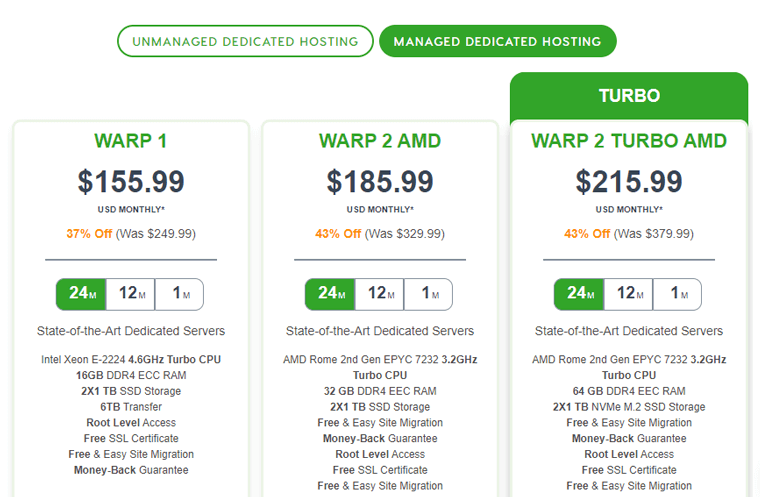
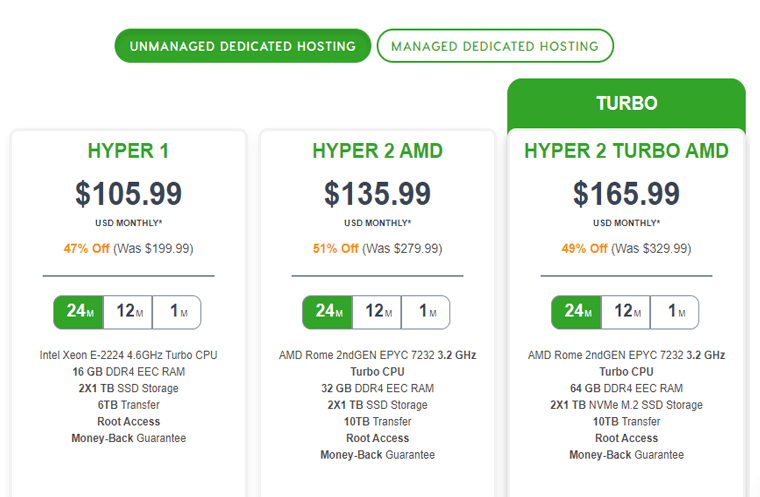
Nevertheless, if you’re on a tight budget and have prior web server knowledge, then unmanaged dedicated hosting can be sufficient for you. It’s less expensive as there are no additional support fees related to the service. However, you’ll have to handle all server maintenance jobs such as server resets, performance, etc.
5. Who requires dedicated hosting?
If you run a sizable company or have dozens of popular websites, then you can consider switching to a dedicated hosting plan. This helps you solve the issues of site downtime and other performance troubles.
You are not advised of a dedicated hosting plan right away if you’re just getting started with web hosting. Rather, you can go for shared or VPS web hosting. Both of them are appropriate for small to mid-sized business sites.
This brings us to our next FAQ related to VPS web hosting.
D) VPS Web Hosting FAQs
Simply, you can understand the term VPS as Virtual Private Server. VPS web hosting is one of the most popular hosting plans available due to its ideal combination of cost and expert capability.
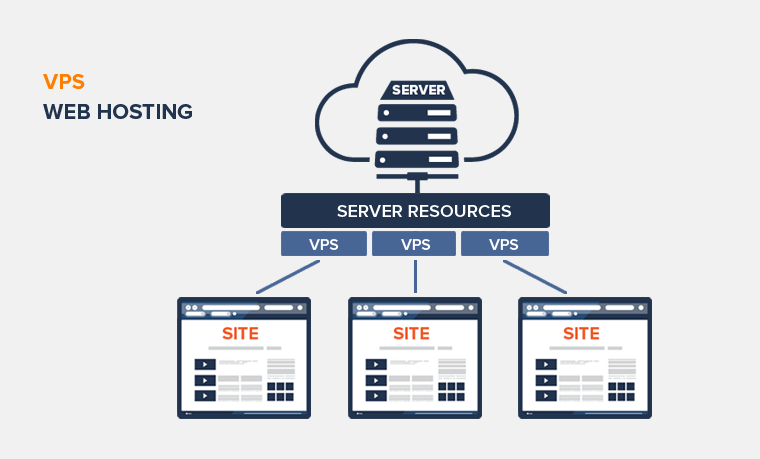
Broadly speaking, VPS is merely an area of a web server dedicated exclusively to your website. Or you can also say, it is a combination of dedicated and shared hosting plans.
However, don’t get confused between shared and VPS hosting as you can find server partitions in both. But you should note that VPS hosting doesn’t impose any restriction on the use of the web server regardless of the partition.
1. What benefits come with VPS hosting?
The possibility to expand hosting plans is the primary and significant benefit of VPS hosting. Besides, it offers you the following benefits:
- It doesn’t limit you to a specific set of server resources. And you can expand your plan whenever you want.
- If you’re unsure of the server resources you’ll need to run your website smoothly, then VPS hosting is the way to go. Its starting rates are just a bit higher than those for shared hosting.
- It’s affordable and expandable. Whether you’re a complete newbie to hosting your site or an experienced webmaster, VPS hosting can be an ideal hosting plan.
2. What is the approximate cost of running a VPS hosting?
Generally, you can find a wide variety of scalable VPS plans offered by many hosting companies. Also, as you know that VPS is merely a specified portion of a web server. So, you can easily change its size as per the need of the web server.

For instance, the majority of hosting companies such as InMotion hosting have VPS hosting plans with monthly costs ranging from $18 to $90. So it makes sense that sites of all sizes use VPS hosting accounts to meet their web hosting necessities.
3. Who ought to utilize VPS hosting?
Have you been utilizing a shared hosting plan and you’ve noticed decreasing site performance and site downtime? Then, it’s time to utilize the VPS hosting.
Importantly, VPS hosting provides you with dedicated server capabilities without having to deal with the additional expense of server maintenance. This provides you with an opportunity to grow and scale your website along with your business. Consequently, this makes it most suitable for small to medium-sized organizations.
Additionally, VPS hosting is also ideal for those who require total control over the software setup and control panel on their server.
With that, let’s move on to the next section i.e. Cloud web hosting FAQs.
E) Cloud Web Hosting FAQs
Another recent advanced hosting plan available in the hosting industry is cloud web hosting. Basically, it distributes your server across numerous distinct devices using cloud technology.
It disperses your website’s files across a vast network of servers rather than storing them on a single physical server. As a result, there is no more resource sharing with other users or websites. This significantly helps to reduce and avoid the downtime of your site.
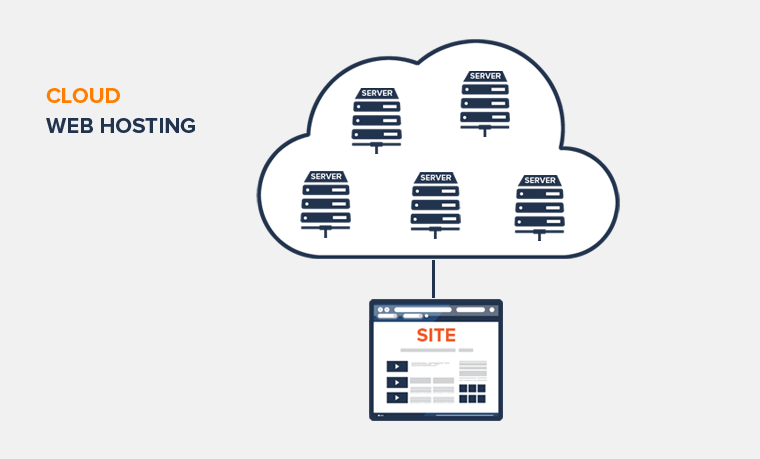
Today, its popularity has increased mostly as a result of its adaptability, uptime, and capacity to develop with your site.
1. How does cloud hosting operate?
Cloud hosting operates through the medium of virtualization. That’s to say, it uses a technique known as cloud servers to divide a real server into several virtual machines. Further, it’s linked together to form a single network for hosting websites.

Moreover, you can also refer to it as cluster server hosting because of its connected cloud structure. With less physical resource allocation, you can think of dozens of personal servers scattered across the world.
Consequently, the special interaction between the virtual server and the real server offers optimum flexibility and scalability.
2. What distinguishes cloud hosting from VPS and dedicated hosting?
In the case of VPS hosting, you have a partitioned portion of the server that you can further completely modify as per the requirement of your site.
Meanwhile, with dedicated hosting, you have complete control over how to customize and utilize a server’s resources.

However, cloud hosting distributes the resources across a number of different machines. It doesn’t constrain to those of a single physical server.
3. What are the advantages of cloud hosting?
There are a few key advantages of cloud hosting that make it stand out from other forms of hosting. Such as:
- You can scale your resources in real-time using cloud hosting.
- Also, you don’t have to worry about a single physical server. Consequently, you can quickly scale up during periods of increased traffic or in other circumstances.
- You just pay for what you use in a cloud hosting environment.
- It’s simple to scale up at a short notice. As a result, you don’t have to pay for excessive resource utilization if you don’t truly need it.
4. What are the disadvantages of cloud hosting?
Cloud hosting can be ideal for businesses that have the technological know-how to fully utilize the cloud environment. However, you won’t maximize the benefits of your cloud hosting without the needed information or the right personnel in place.
In addition, you need a substantial level of technical expertise due to its wide customization capabilities.
Though you can find several security measures to manage such a diverse range of data and resources in cloud hosting. Some customers might not prefer to have all of their site’s files in a single area due to various technological vulnerabilities.
5. Who exactly would profit from cloud hosting?
Precisely, large enterprises with the needed technical staff support can typically benefit from using cloud hosting plans. Meanwhile, it wouldn’t be that suitable for small organizations or start-ups.
In fact, even managed cloud solutions need a certain level of technical knowledge. Only then, you’ll be able to allocate the cloud resources in the most optimum way and profit from it.
Having said that, let’s move forward to managed WordPress hosting FAQ.
F) Managed WordPress Hosting FAQs
Managed WordPress hosting is a hosting service precisely tailored for WordPress websites. It’s created with “ONLY” WordPress in mind. As a result, it gives WordPress sites a solid foundation and superior performance.
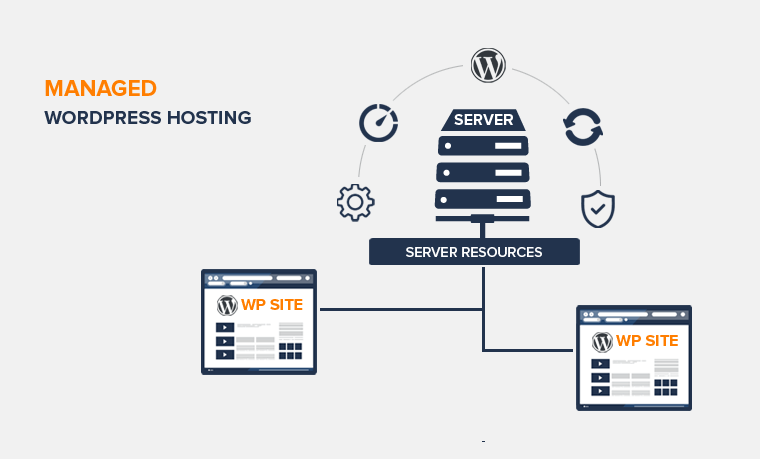
Moreover, a managed WordPress hosting package offers you more than just the standard web hosting features. However, you’ll also have access to a variety of site management and upkeep options. In particular, it will take care of and enhance all necessities such as security, backup, maintenance, and speed.
Do check our article on what is managed WordPress hosting for more comprehensive guidance.
1. What are the positives of managed WordPress hosting?
Some of the significant positives of managed WordPress hosting are:
- Its settings are fully set up and adjusted for maximum performance. Moreover, WordPress is already set up there. So you don’t need to manage one yourself.
- Additionally, the majority of plans include a CDN service. This accelerates the loading time of your website.
- Readily monitors and guards against WordPress-related security threats. This way, you’ll have enhanced security of your server environment in managed WordPress hosting.
- Besides, you get a user-friendly hosting dashboard, one-click staging environment, better customer support, and so on.
2. What drawbacks do managed WordPress hosting have?
Along with significant advantages, it has a few drawbacks such as:
- Suppose you’re a tech-savvy user. And, you want some degree of independent server configuration. But managed WordPress hosting denies you this choice.
- Comparatively, managed WordPress hosting has stricter rules and policies. Like you can use only chosen plugins and there’s a limit to using some other plugins.
- In addition, these hosting plans are typically more expensive than other options due to the extensive feature set they offer.
3. Who would gain the most from using the managed WordPress hosting plan?
The managed WordPress hosting plan is particularly fruitful for medium to high-traffic WordPress sites. As you would undoubtedly benefit from the rise in performance of your site.
Once you switch to managed WordPress hosting, the majority of heavily visited WordPress sites will experience faster loading times. Along with that, your site performance is improved.
Additionally, a specialized team of WordPress specialists works with these managed WordPress hosting options. This makes it easier for you to get the support you need at any level.
4. How managed WordPress hosting varies from shared hosting?
The subsequent stage of hosting for WordPress sites is managed WordPress hosting. It’s specifically designed to offer the best hosting setting for WordPress websites. Also, its setup and software customizations are primarily what set it apart from other hosting environments.
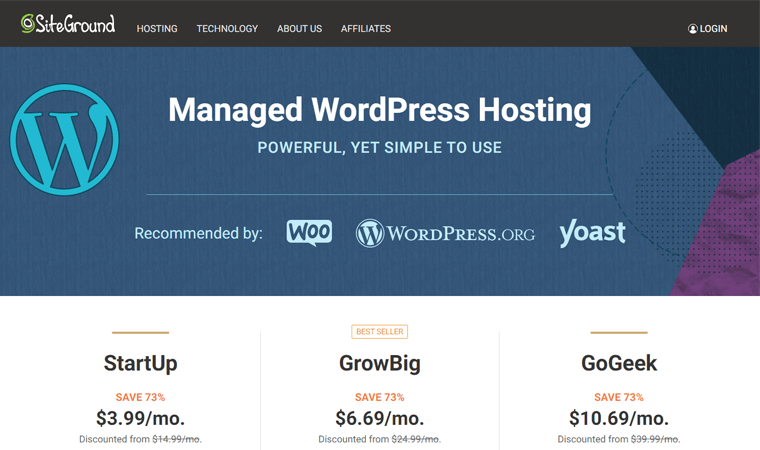
It frequently comes with functions like site upgrades, enhanced WordPress performance, malware checks, backups, and more. When using managed WordPress hosting, everything relevant to your server environment is handled for you.
Thereby, managed hosting plan practically handles every aspect of your WordPress website in comparison to shared hosting.
5. Is managed WordPress hosting usable in the absence of a WordPress website?
No, you cannot use the managed WordPress hosting in the absence of a WordPress website.
WordPress site owners are the only ones who can use managed WordPress hosting. In other words, it’s specifically designed whole and sole only for WordPress websites.
You cannot use it to host a website using any other CMS platforms like Drupal, Joomla, and so on.
Having said that, let’s move on to another portion that is reseller web hosting FAQs.
G) Reseller Web Hosting FAQs
The concept of reseller web hosting is quite simple. That is you buy web hosting services in bulk volume and at a sizable discount. Then, you can resell these services for a substantial profit.
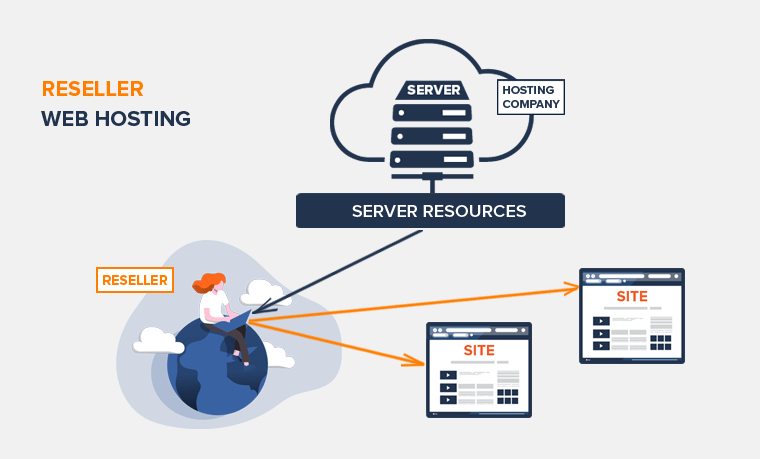
The main objective of such kind of web hosting plan is to offer you the required server resources and tools. This way you can start your own web hosting company from the ground up. The server’s software configuration, resource distribution, and hosting plan layout are all completely under your control.
You can definitely consider becoming a reseller if you want to make money in the extremely lucrative web hosting sector.
1. How does reseller hosting generate revenue?
Generating revenue with reseller hosting is rather an easy process. As soon as you’ve bought the plan, you’ll easily have access to the server resources. With that, you can start creating your own pea-sized hosting plans.
The secret is to offer the server resources for a fair price while yet adding a significant markup.

For example, let’s say, a hosting company offered you 160 GB of disk space and 1600 GB of bandwidth. Now, you can create 10 hosting accounts with 15 GB of disk space and 150 GB of bandwidth each. Along with keeping 10 GB of disk space and 100 GB of bandwidth for your own hosting needs.
This is why you can see the growing popularity of reseller hosting specially for tech experts today.
2. What are the benefits of reseller hosting?
Some of the significant benefits of reseller hosting are:
- Provides you with the equipment you need to launch a hosting business quickly.
- Most reseller programs have extensive site-building features that let you create a professional website. This automatically helps you to entice customers.
- Each of your customers receives its own control panel and you may brand it and provide unique specialized CMS too.
- Additionally, you receive an automated internal billing system to charge your clients on a routine basis. This makes it easier to manage the financial aspects of a firm.
- You’ll even get private nameservers that give the impression that you own the client’s web server. This increases the credibility of your hosting firm.
3. How can you enlarge your hosting business?
No doubt, a reseller hosting plan is one of the desirable hosting choices. Particularly if you’re a web designer or tech expert. Yet, you’ll have to take a few things into account so as to enlarge your hosting business. Such as:
- Obtain a reseller hosting plan only from a trustworthy hosting company. As it immediately affects the resources you utilize.
- Responsiveness is the mantra. That’s to say, you should make sure that you handle your clients’ inquiries as promptly and effectively as possible.
- You can also establish an email management solution or create a specific social media channel for support queries.
- It’s crucial to create a solid marketing plan that will expose your reseller hosting company to more customers.
H) Technical FAQs about Web Hosting
Now, in this section, let’s check out some of the technical FAQs about web hosting.

1. What are data centers for web hosting?
Broadly, data centers are the locations that house and keep servers and software for customers. All of the leading web hosting companies have private data centers where they keep all of their web servers. You can simply understand data centers are built specifically to meet a web server’s environmental requirements.

Moreover, most web hosting companies employ a distinct on-site team. They are rigorous in maintaining the data center’s temperature, dust content, humidity, lighting, cleanliness, and security. Along with regulating the optimal condition of all the web servers.
2. What does disk space mean? Do you need a lot of disk space?
Disk space refers to the total amount of storage space assigned to your website, server, or server partition. It’s crucial to have enough disk space because it directly impacts the maximum size restrictions for your site.
The best way to determine your disk space requirements is to project how big your website will be in the near future. You can extend your hosting plan if necessary, but the development of your website should be quick and easy. So when you have a plan with enough disk space, you can avoid needlessly upgrading.
3. What is bandwidth? How much bandwidth is needed?
Simply, you can understand bandwidth as the measurement of the amount of data being sent via your web server at any particular time.
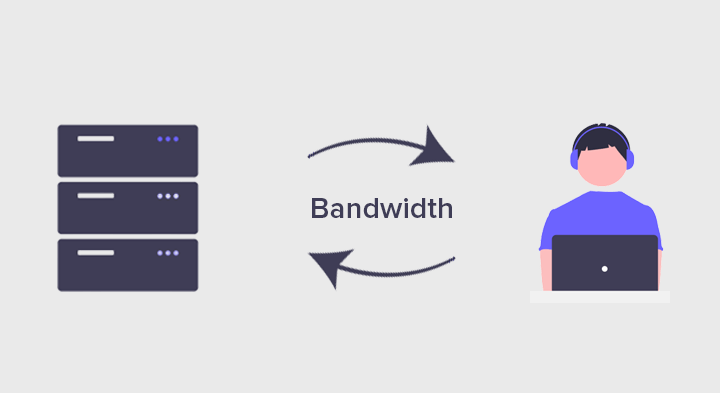
Having enough bandwidth is essential for the success of your website as it’ll impact the user experience. Particularly, in times of high traffic. Every user of your website that views a page uses bandwidth since they download and upload data to the web server.
Consequently, the amount of bandwidth you’ll need entirely depends on the type of website you have and the expected daily traffic. It’s vital to keep in mind that websites with lots of multimedia content frequently use more bandwidth.
4. How do control panels work? What things to consider while choosing a control panel?
Control panels are the Graphical User Interface (GUI) to administer your web hosting account. You can upload and arrange website material there, adjust domain name settings, schedule tasks, and more.
A decent web hosting control panel can accomplish all of this and more. Whether you need an in-depth traffic evaluation or a simple interface to check your emails. So, you should take the following things into account while choosing a control panel:
- Choose a web hosting plan with your desired control panel pre-installed. This is the easiest way to receive the control panel of your choice.
- If you’re just starting out with web hosting, then a simple and straightforward control panel is recommended.
- After you feel at ease with that, you can start using a more sophisticated one that offers you control over more complex server setups.
5. What is meant by add-on domains? Why is it necessary to check in a hosting plan?
To grasp this, consider your web hosting company like an office complex. You have rented space for your company, but you want to look into additional business opportunities. You need more room for that. Would you search for a brand-new office complex?
Obviously not. In your current office building, you would lease out more space that would probably be near to the space you now have. An addon domain gives you that. It’s an additional domain that is hosted by your current hosting company and is completely functional.

It enables you to host multiple websites without having to look for a new web host or web hosting account. You can use your addon domains in the exact same ways that you use your primary domain, including creating email accounts. This makes it necessary for you to verify the addon domain feature in your hosting plan.
Want to build a website on your own? Check our comprehensive guide article on how to make a website to quickly start from the ground level.
Conclusion
That’s it, folks! With that, we believe you’ve got the answers to the most popular web hosting FAQs. Consequently, you can exactly buy the suitable hosting plan that suits your website’s needs.
Besides the above-mentioned web hosting FAQs, if you’ve any other queries, then do let us know in the comment section below. We’ll be delighted to reach out and clear your doubts.
With that are you wondering how to choose the best web hosting company? Then, make sure to go through our article on what to look for in a web hosting company.
You might want to check our other hosting-related articles. Such as best web hosting for freelancers and best web hosting services for small businesses.
Do step forward to share this article web hosting FAQs with your friends and family if you find it fruitful.
Remember to follow us on Facebook and Twitter to stay updated with our recent articles and updates.
Some of the links on this article/page are affiliate links. If you click on such an affiliate link and purchase the product, we’ll earn a specific percent commission from the seller. But it won’t at all affect the price you’ll pay.

